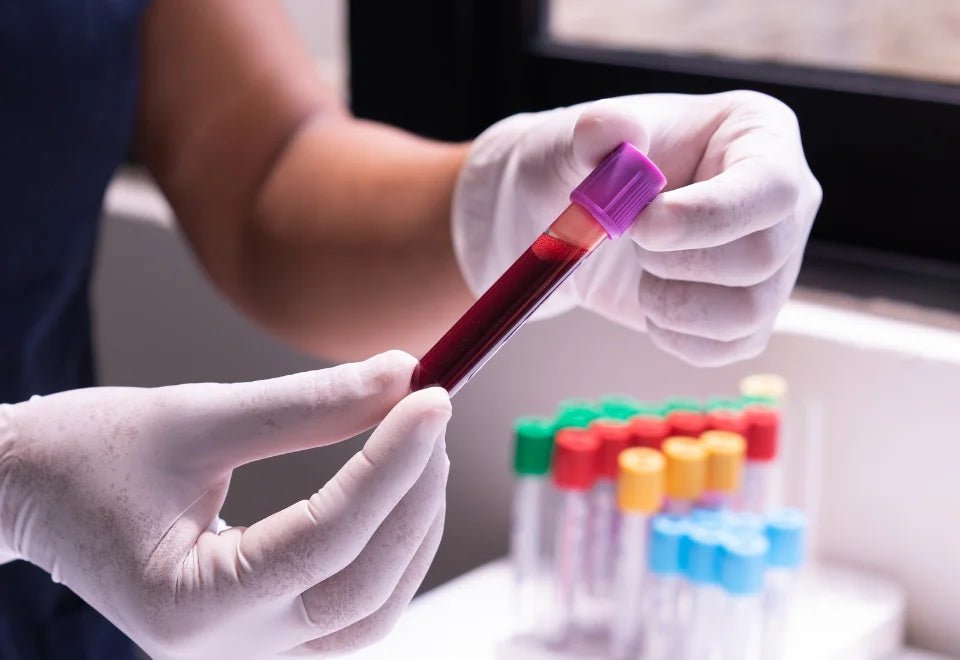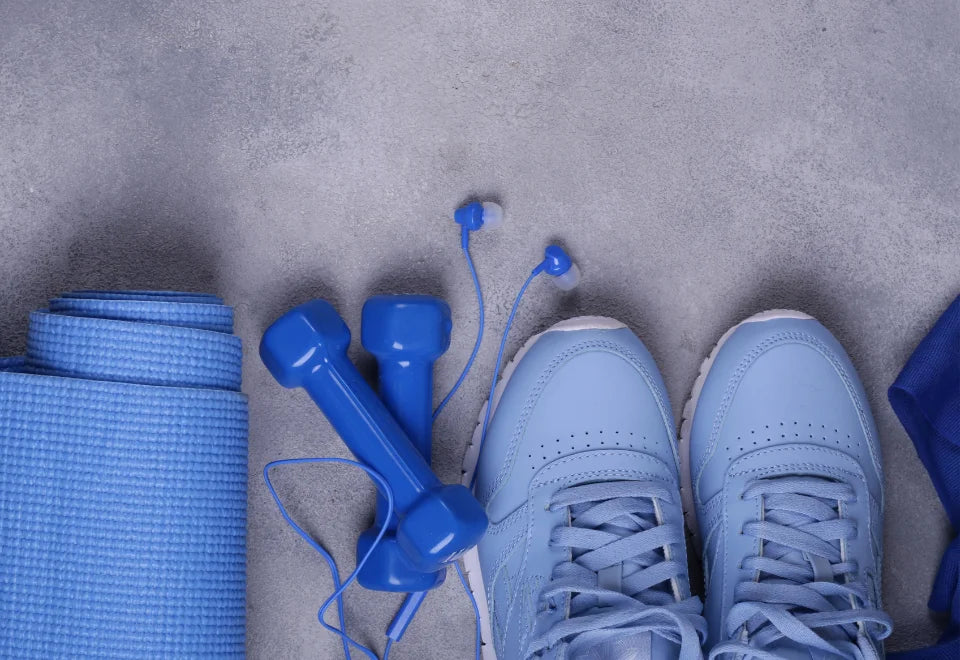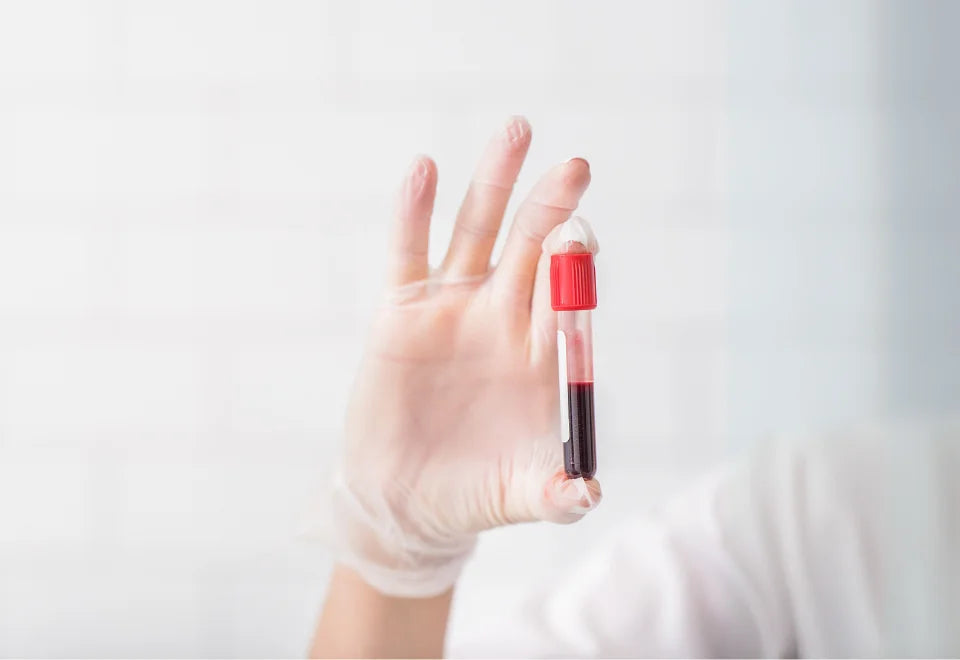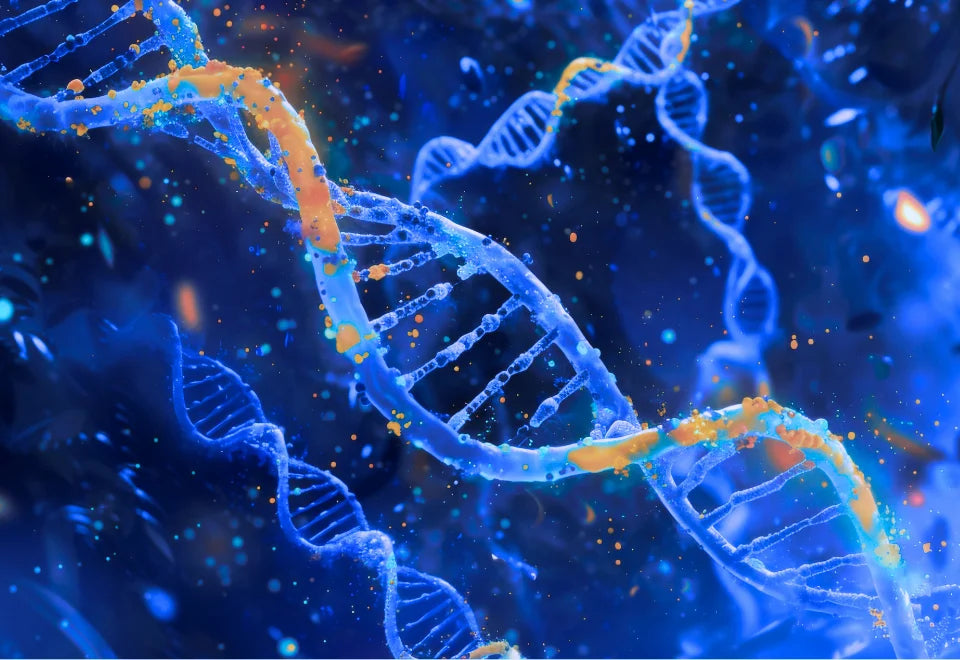Decode Age Blood Test: An Innovative Way to Know Your Biological Age
Our health and ageing can differ from our chronological age. That’s why it’s important to know your biological age to see how lifestyle changes and interventions affect ageing. Researchers have found blood biomarkers linked to healthy ageing, which help them measure biological age, regardless of their actual age (Bortz J et al., 2023). Unlike chronological age, which just counts years, biological age shows how fast your cells are ageing. Diet, exercise, stress, sleep, and habits like smoking and drinking can all affect your biological age—leaving signs in the blood. So, a biological age blood test can help you understand your real health status. Decode Age offers the most advanced at home blood test - Decode BloodAge Test for knowing your biological age.
What is a Biological Age Blood Test?
A biological age blood test evaluates your internal health to provide a more precise measure of your true age. During this test, your blood sample and lifestyle factors are analysed to make a customised plan with nutritional recommendations for healthier living.
Benefits of Decode BloodAge Test
- Decode Age Blood Test is a biological age test kit that helps you to discover your internal age and see how you compare to others your age.
- This biological ageing test can identify biomarkers that indicate premature ageing even if they are not shown in routine health check-ups.
- It analyses specific biomarkers to determine the health and function of four vital organs— kidney, liver, glucose levels, and lipids.
- The biological age blood test identifies the markers that are out of the normal range and are considered to be contributing to your biological age. In addition, it provides personalised diets and supplementation accordingly.
Essential Biomarkers to Measure Biological Age

Over the years, scientists studied various biomarkers for biological ageing tests. It has been found that testing many of these key biomarkers provides a correct way to measure biological age. Decode Age Blood Test uses over 70 biomarkers for your biological ageing test.
High HbA1c Levels
HbA1c is a usual biomarker to diagnose diabetes. Several studies have found that patients with diabetes have a greater biological age. As a result, HbA1c is a useful biomarker for biological age blood tests.
Kidney Biomarkers
Measuring kidney biomarkers such as creatinine, blood urea nitrogen, creatinine ratio, and eGFR can be useful in biological ageing tests.
Variations in Electrolytes
Increased and decreased levels of sodium are very common in older people and are also linked with high mortality (Schlanger et al., 2010). Electrolytes measured during biological age blood testing include sodium, potassium and chloride.
Protein Level Fluctuations
Various studies show that many proteins in our blood can indicate the rate of biological ageing (Johnson et al., 2021). Measuring total protein, albumin, globulin, and albumin: globulin ratio can be useful to measure biological age.
Essential Mineral Biomarkers
Calcium, phosphorus, and serum magnesium are the commonly used mineral biomarkers in biological age blood tests.
Liver Function Tests
These are valuable biological age predictors. The tests that are performed to measure biological age include:
- Alkaline Phosphatase
- AST (SGOT)
- AST: ALT Ratio
- ALT (SGPT)
- GGT (Gamma-Glutamyl Transferase)
- Bilirubin Total
- Bilirubin Direct (Conjugated)
- Bilirubin Indirect (Unconjugated)
Elevated Iron Levels
Iron builds up as we age and is linked to many age-related diseases. Iron tests such as iron serum, TIBC (total iron-binding capacity), UIBC (unsaturated iron-binding capacity) and transferrin saturation are conducted to measure biological age.
Lipids and Cholesterol
Ageing and genetic differences can affect how the body processes lipids. Cholesterol is known as one of the best biomarkers in biological ageing tests.
Variations in Thyroid Levels
Various studies show that thyroid hormones influence cell processes linked to ageing and most age-related diseases (Gauthier BR et al., 2020). TSH, T4 and T3 total are evaluated during biological age blood testing.
Increased Inflammatory Markers
Increased inflammation is associated with ageing and is often indicated by higher levels of inflammatory proteins like C-reactive protein (CRP) and interleukin-6 (IL-6) (Meier HCS et al., 2023). These proteins are measured during biological age blood tests.
Complete Blood Count
A complete blood count including RBCs, WBCs, platelets, neutrophils, and lymphocytes, is evaluated to measure biological age.
Simple and Convenient, At Home Blood Testing with Decode BloodAge Test
The Decode BloodAge Test which is one of the best Biological Age Tests uses a simple blood sample to determine your biological age. It provides a detailed report on your blood markers and ageing status. Here’s how it works:
- Get your KIT ID via your registered contact details
- Fill out the questionnaire about your lifestyle, health, and family history
- Book a time for your sample collection
- Our phlebotomists will collect your sample at the scheduled time
- The samples are then sent to the lab for analysis
- Get a detailed blood summary report highlighting key factors affecting your ageing rate with actionable solutions to slow it down
The Decode BloodAge Test is India’s first blood-based biological age test kit—providing an actionable plan to help you make informed lifestyle and healthcare decisions for a healthier life.
Effect of Biological Ageing Tests on the Future of Ageing Research
Biological ageing is influenced by your actual age, how well your health matches your age, and your estimated life expectancy. It differs from person to person and can be measured with biomarkers, which help identify those at risk of fast ageing. Studies show that having a higher biological age during a biological age blood test can warn of nervous system problems years before they develop (McMurran CE et al., 2023). Recently modern techniques like deep learning are being used to develop more accurate biological ageing test methods.
Conclusion
Biological ageing tests are useful because they are based on biomarkers and can change with your lifestyle and health choices. Decode Age Blood Test is one of the best biological age tests at the moment—it is a blood test that determines your biological age based on more than 70 biomarkers. Don’t wait – Get started today and embrace a pro-health approach to your life.
FAQs
How do you check your biological age at home?
If you want to know your biological age at home, take the Biological Age Blood Test from Decode Age - Decode Age Blood Test. Complete an online lifestyle and health questionnaire, book an appointment for blood sample/prick testing and finally receive a full report on how to age well with customised solutions.
Does Decode Age Blood Test offer at home blood tests?
Yes, Decode Age Blood Test provides home blood sample collection. Once you schedule your slot, our phlebotomists will collect the sample at your preferred time.
Why does my biological age appear higher?
During a biological age blood test, if your biological age is higher than your actual age, it could indicate that your cells have sustained major damage and that your body is ageing faster than typical for your age. The common causes of high biological age are; smoking, taking alcohol, poor sleeping habits, stressful working conditions, eating unhealthy foods, and becoming obese.
How can I improve my biological age?
Studies show that by improving your diet, sleep, and exercise and using techniques like relaxation and supplements you might slow down or reverse ageing. Better nutrition, quitting smoking, weight management, controlling cholesterol, blood sugar, and blood pressure can all help improve your biological age.
What do biomarker blood tests indicate?
Biomarker blood tests are important for disease screening, diagnosis, treatment monitoring, and follow-up. This helps doctors to predict reactions to treatments, as well as act as early indicators or health alerts. Biomarker blood tests may show whether you have a higher risk of some health problems.
How to measure biological age?
The Decode BloodAge Test examines biomarkers to detect signs of ageing caused by accumulated damage and metabolic irregularities. Using algorithms trained on extensive datasets, this biological age blood test predicts your true biological age through a simple evaluation of blood panels.























Leave a comment
All comments are moderated before being published.
This site is protected by hCaptcha and the hCaptcha Privacy Policy and Terms of Service apply.